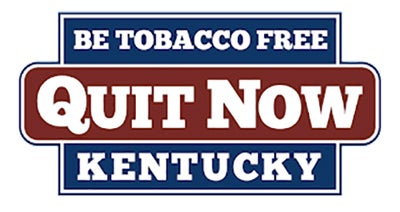Kentucky pauses use of Johnson & Johnson COVID-19 vaccine
Published 5:36 am Wednesday, April 14, 2021
Kentucky temporarily halted using the Johnson & Johnson COVID-19 vaccine Tuesday, but suspending the single-dose shots shouldn’t slow the pace of inoculations in coming days due to the availability of other vaccines, Gov. Andy Beshear said.
The Bluegrass State joined in pausing the J&J vaccine rollout as federal health agencies investigate reports of rare but potentially dangerous blood clots. Seeking to reassure Kentuckians who received J&J shots, Beshear said, “You’re going to be OK.”
“We’re going to work through this,” he said. “I think it’s going to be deemed safe and effective. But we’re going to pause until everybody knows how to treat … what appear to be very rare complications.”
Beshear and other governors participated in a call Tuesday with top federal health officials. The governors were told they should expect the J&J vaccine pause to last a few days or possibly a week. The message was that “it is likely not to be longer than that,” Beshear said.
The pause in using J&J vaccine comes a day after the governor set a benchmark of vaccinating 2.5 million Kentuckians to end capacity restrictions at most of the state’s businesses and venues.
The suspension “isn’t good news, but it is also not crippling news for our vaccination efforts,” the Democratic governor said at a news conference.
J&J doses represent a fraction of overall vaccines received by Kentucky, and the state has large supplies of Pfizer and Moderna COVID-19 vaccines, Beshear said. That means people with canceled appointments for J&J shots in the next couple of days should be able to sign up in their area to receive their first dose of Pfizer or Moderna vaccine as soon as this week, he said.
“We cannot let this slow us down,” the governor said. “And it shouldn’t slow us down.”
With incoming shipments of Pfizer and Moderna doses expected this week, “we ought to be able to make up any loss of appointments from J&J,” he added. Beshear stressed that the Pfizer and Moderna two-shot-regimen vaccines are “entirely safe” and “incredibly effective.”
The suspension of J&J shots, however, could complicate efforts to overcome vaccine hesitancy among some Kentuckians, Beshear acknowledged.
“Stay calm,” he said. “It looks like the risk here is very, very small versus the really significant risk of being harmed by COVID. They’re being careful.”
The U.S recommended the pause in using the J&J vaccine as the Centers for Disease Control and Prevention and the Food and Drug Administration said they were investigating unusual clots in six women between the ages of 18 and 48. One person died, and all of the cases remain under investigation. More than 6.8 million doses of the J&J vaccine have been administered in the U.S., the vast majority with no or mild side effects.
Kentucky has received about 210,000 doses of J&J vaccine, Beshear said. He didn’t have a specific number of how many doses had been administered, but he estimated J&J vaccines accounted for less than 5% of overall COVID-19 shots in Kentucky.
Like many states, Kentucky has used J&J shots for more vulnerable and hard-to-reach populations. Inmates at jails and prisons have been among the Kentuckians to receive the single-dose shots.
On Monday, Beshear pledged to lift capacity restrictions at most businesses and venues once 2.5 million Kentuckians have received at least their first COVID-19 shot. Meeting the “vaccination challenge” also would result in removing physical distancing restrictions as well as curfew restrictions on bars and restaurants.
Beshear estimated Monday that about 1.6 million Kentuckians had received at least their first dose of a COVID-19 vaccine. Anyone 16 or older is eligible to be vaccinated in Kentucky.
Meanwhile, the state reported 799 new coronavirus cases and four more virus-related deaths Tuesday. One death was discovered through the state’s audit of deaths from prior months. Kentucky’s virus-related death toll rose to at least 6,261.
The state’s rate of positive cases rose to 3.2%. More than 400 virus patients are hospitalized in Kentucky, including 96 in intensive care units.






